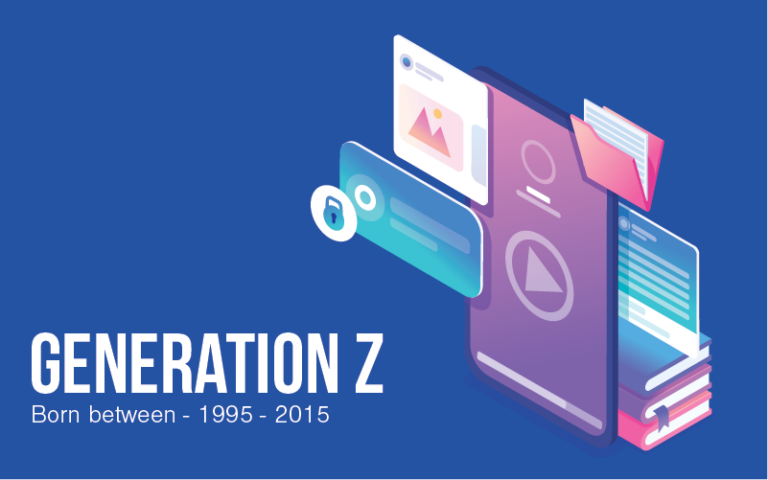How do generations learn differently? – Generation Z

In the final instalment of this miniseries, we look at Generation Z and how they learn. Generation Z is the current generation of college students and those just entering the workforce. It covers those born after 1996 to the present day.
Gen Z learners have grown up with access to information. They can search for the answer to any question in seconds. This means that they have poor critical thinking skills and they cannot analyse or look between the lines when they answer these questions.
As Gen Z employees are the youngest and newest members of the workforce, they are very much motivated by financial rewards and career advancements when it comes to training and development.
Generation Z employees are entering a workforce where moving jobs is a lot more common throughout their careers. However, if a Gen Z employee demonstrates skills and talent, it is important to encourage that staff member to stay within your organisation and create a training offering that will nourish and develop their skills and further develop the business as a whole.
Gen Z employees are much more comfortable with incorporating work into their lives. They are fully mobile and if provided with the right tools and training, they will fully engage and be even more flexible than millennials.
Gen Z employees value social equality and innovation. Providing training that allows them to problem solve and brainstorm creating an opportunity to break down social barriers and integrate with other members of staff is something which will motivate Generation Z employees.
It is for this reason that Gen Z employees are very different from Millennials as they respond very well to eLearning and more traditional training methods.
The biggest difference between Millennials and Gen Z learners is that the primary device for Gen Zers is mobile. The time is now to prepare for this new generation. In the next five years, this generation is going to make up a large part of your workforce.
This blog concludes the miniseries where we have looked at the three generations that currently make up the workforce.
We are aware of the Importance of training, but it is important to prepare for the future and listen to employees to create training programmes that they will not only engage with but that they will benefit from also.

